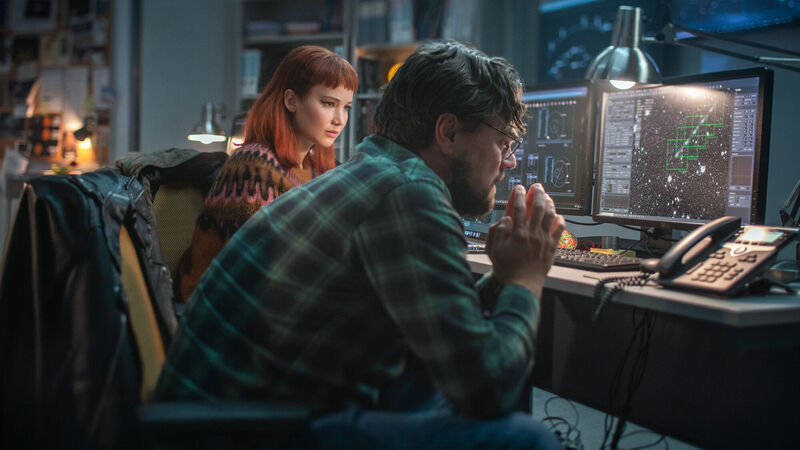Maeve Higgins: Let's celebrate those creating successes on top of the heartbreak

Leonardo DiCaprio as Dr Randall Mindy and Jennifer Lawrence as Kate Dibiasky in the film 'Don't Look Up'.
Try from €1.50 / week
SUBSCRIBE
Leonardo DiCaprio as Dr Randall Mindy and Jennifer Lawrence as Kate Dibiasky in the film 'Don't Look Up'.
SPOILER ALERT: This piece mentions what happens at the end of the Netflix movie Don’t Look Up. Here it comes now: A small number of people in the US, politicians and tech billionaires, who supposedly own and control the most resources on the planet, fail to act against an existential threat to all life on Earth. There is a comet hurtling toward Earth, and despite repeated warnings and potential solutions offered by scientists, the comet hits, destroying all life.
The comet is an allegory for the climate crisis. The movie makers’ fear and rage about the climate crisis threatening Earth are channelled with creativity and humour. There are excellent jokes and set pieces. Don’t Look Up is beautiful and angry and full of amazing people at the top of their game doing great work.
Already a subscriber? Sign in
You have reached your article limit.
Annual €130 €80
Best value
Monthly €12€6 / month
Introductory offers for new customers. Annual billed once for first year. Renews at €130. Monthly initial discount (first 3 months) billed monthly, then €12 a month. Ts&Cs apply.
CONNECT WITH US TODAY
Be the first to know the latest news and updates
Newsletter
Sign up to the best reads of the week from irishexaminer.com selected just for you.

Select your favourite newsletters and get the best of Irish Examiner delivered to your inbox
Monday, February 9, 2026 - 6:00 AM
Monday, February 9, 2026 - 8:00 AM
Monday, February 9, 2026 - 8:00 AM
© Examiner Echo Group Limited